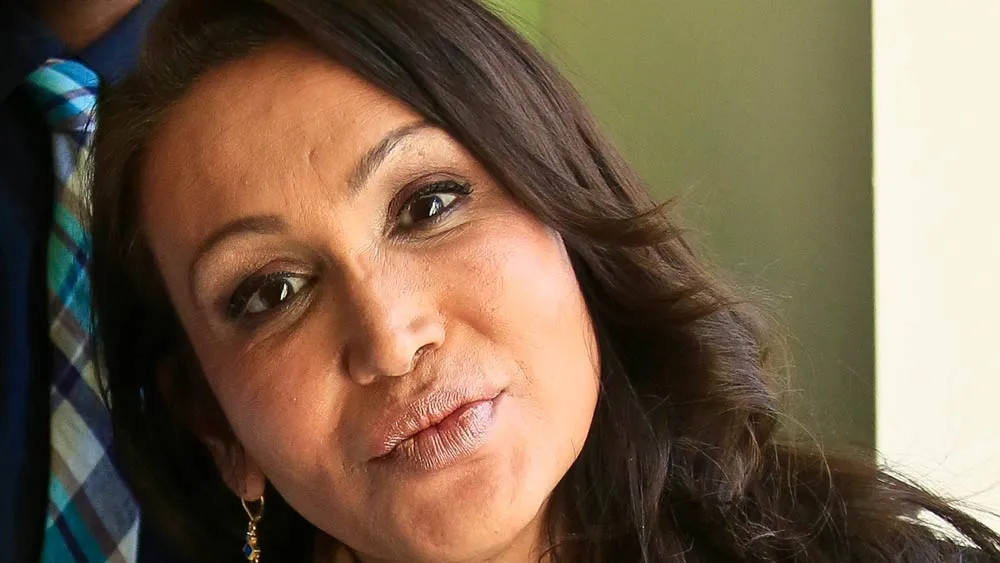June 23, 2011
NY Gov. Cuomo Makes Major Push for Marriage Equality
Kilian Melloy READ TIME: 3 MIN.
Dozens of gay couples are planning to converge on Albany Thursday to witness what would be a historic vote to legalize gay marriage in New York, the sixth state to do so and a potential bellwether in the national gay rights movement. But for that to happen, Gov. Andrew Cuomo's considerable political skills will be tested as never before to engineer one of the biggest social changes in a generation.
The Democrat has been using a kind of shuttle diplomacy to privately test proposals for additional religious exceptions within the Senate's Republican majority. He's talked to individual senators or small groups of lawmakers privately, breaking down barriers and letting them take his message to others in the Republican caucus.
The proposed protections are aimed at saving religious groups from discrimination lawsuits if they refuse to recognize gay marriage based on their principles.
Those exceptions - carve-outs in the political lexicon - are intended to coax the state Senate's Republican majority, most who oppose gay marriage, to allow the bill to the Senate where Cuomo thinks it will pass by a bipartisan vote led by Democrats. He's made the issue one of his primary objectives in his first year in office.
"Will the conference allow a vote to be taken, that's the threshold," Cuomo said Wednesday evening. "I'm pro-marriage equality, I'm also pro-First Amendment, I'm pro-church-state separation and I'm pro-religious freedom. So I also have the same concern."
Even if Republicans agree to the religious exemptions, that's no guarantee the bill will pass. On Wednesday, Cuomo, Senate Republican leader Dean Skelos and Democratic Assembly Speaker Sheldon Silver said they agree in principle on more protections for religious groups, but critical negotiations over wording were expected to continue into Thursday, dragging out further a process that started to accelerate in earnest last Monday.
"It's not just the people who are going to vote `yes' or who may vote `yes,'" Cuomo said. "The entire (Republican) conference is looking at this language and the whole conference wants to make sure that they feel confident that if it comes out, and if it passes, that it protects religion."
Persuading those Republicans to get the bill to the floor for a vote was a pressure point for some of the hundreds of demonstrators at the Capitol on Wednesday. Signs cropped up threatening Republicans that if they allow the bill to the floor they could face a costly primary even if they ultimately vote against gay marriage.
Conservative Party Chairman Michael Long has also urged Senate Republicans to keep the bill from the floor, where a block of Democrats and a few Republicans could pass it. Among Democrats in the Senate, 29 of 30 say they'll vote for gay marriage, meaning only three Republicans need to vote for it to pass in the 62-seat chamber. Two have already committed to voting for it. There are only a small handful of senators, maybe as few as two, who are undecided.
"If gay marriage passes, it is Republicans across the state who will pay the biggest price," Long said in a joint statement with Democratic Sen. Ruben Diaz Sr., a Bronx minister who leads opposition to same-sex marriage.
Long has said he would withhold the often critical Conservative endorsement from Republicans who vote for gay marriage. That threat was countered somewhat this week by New York City Mayor Michael Bloomberg's visit to persuade Republicans to approve the bill: the independent, millionaire mayor is a longtime and generous contributor to Senate Republicans.
New York's action is being watched closely as a pivotal moment in the national gay rights movement. With the country's third-largest population, the international cultural cachet of New York City and a vast media presence, the state represents a major objective for both sides.
Two Republicans clearly undecided are Sen. Stephen Saland, of the Hudson Valley, one of the Senate's most veteran and respected members, and Sen. Mark Grisanti, of Buffalo, a freshman who is part of the GOP youth movement voted into office in the 2010 Republican tide nationwide.
Vermont, New Hampshire, Connecticut, Massachusetts, Iowa and the District of Columbia allow gay marriage. Of them, all but Massachusetts and Washington, D.C., allow at least limited religious exemptions.
___
Associated Press writer Michael Virtanen contributed to this report.
Kilian Melloy serves as EDGE Media Network's Associate Arts Editor and Staff Contributor. His professional memberships include the National Lesbian & Gay Journalists Association, the Boston Online Film Critics Association, The Gay and Lesbian Entertainment Critics Association, and the Boston Theater Critics Association's Elliot Norton Awards Committee.


